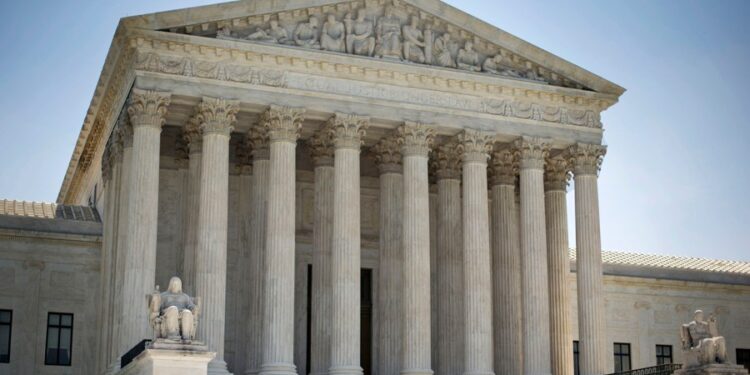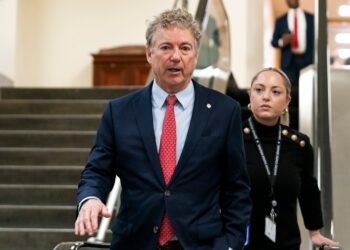
The Supreme Court stiffed President Trump in his administration’s first high court appeal by punting Friday on a request to greenlight the firing of the head of a whistleblower protection office.
The administration filed an emergency application asking the justices to wipe a lower court’s temporary reinstatement of U.S. special counsel Hampton Dellinger, whose office is tasked with protecting whistleblowers and prosecuting misconduct in the federal workforce.
The court “held in abeyance” the application until the lower court’s order expires Wednesday, effectively punting on whether the firing was legal and keeping Dellinger in his post for at least another few days.
Justices Sonia Sotomayor and Ketanji Brown Jackson, both members of the court’s liberal wing, voted to outright deny the administration’s request to greenlight the firing.
Justices Samuel Alito and Neil Gorsuch, two of the court’s conservatives, said they would’ve wiped the ruling reinstating Dellinger and disagreed with their colleagues that the ruling’s temporary nature meant it had not “ripened into an appealable order.”
“Respectfully, I believe that it has and that each additional day where the order stands only serves to confirm the point,” Gorsuch wrote, joined by Alito.
The dispute is the first lawsuit to reach the Supreme Court among several challenges to Trump’s firings of independent federal agency leaders with statutory removal protections, part of the administration’s broader effort to expand White House control of the agencies.
The list also includes Trump’s firings of Democratic appointees to multimember commissions like the Merit Systems Protection Board, National Labor Relations Board and Federal Labor Relations Authority.
Dellinger’s office, which is different from Justice Department special counsels like Jack Smith, who are appointed to oversee particular investigations, is in a prime position to question actions taken by the Trump administration.
The Office of Special Counsel provides an avenue for whistleblowers to report concerns about government wrongdoing and works to protect them from reprisal. It also responds to potential violations of the Hatch Act, the law that guards against electioneering by federal employees.
Nominated by former President Biden to lead the office, Dellinger sued after Trump fired him on Feb. 7 and quickly convinced a federal district judge to issue a temporary order reinstating him.
Such temporary orders are not normally appealable, but the Trump administration brought its demands for an exception all the way to the Supreme Court, casting the judge’s ruling as an assault on the separation of powers.
“When a district court crosses a constitutional red line and purports to bar the President from replacing an agency head he does not want to entrust with executive power—potentially for up to a month—this Court can and should intervene,” acting Solicitor General Sarah Harris wrote in court filings Wednesday.
Dellinger’s attorneys told the justices they had no jurisdiction at this stage of the case.
“That rule protects core judicial interests in orderly administration and sound deliberation; it also avoids needless inter-branch conflict and premature escalation of politically fraught disputes,” Joshua Matz, Dellinger’s attorney, wrote in court filings.
“But as evidenced by this very case—which reached the Supreme Court less than six days after it was first filed—the government now prefers a new arrangement,” Matz continued. “To accept its theory and grant its request for relief would be to invite more of the same: a rocket docket straight to this Court, even as high-stakes emergency litigation proliferates across the country.”







